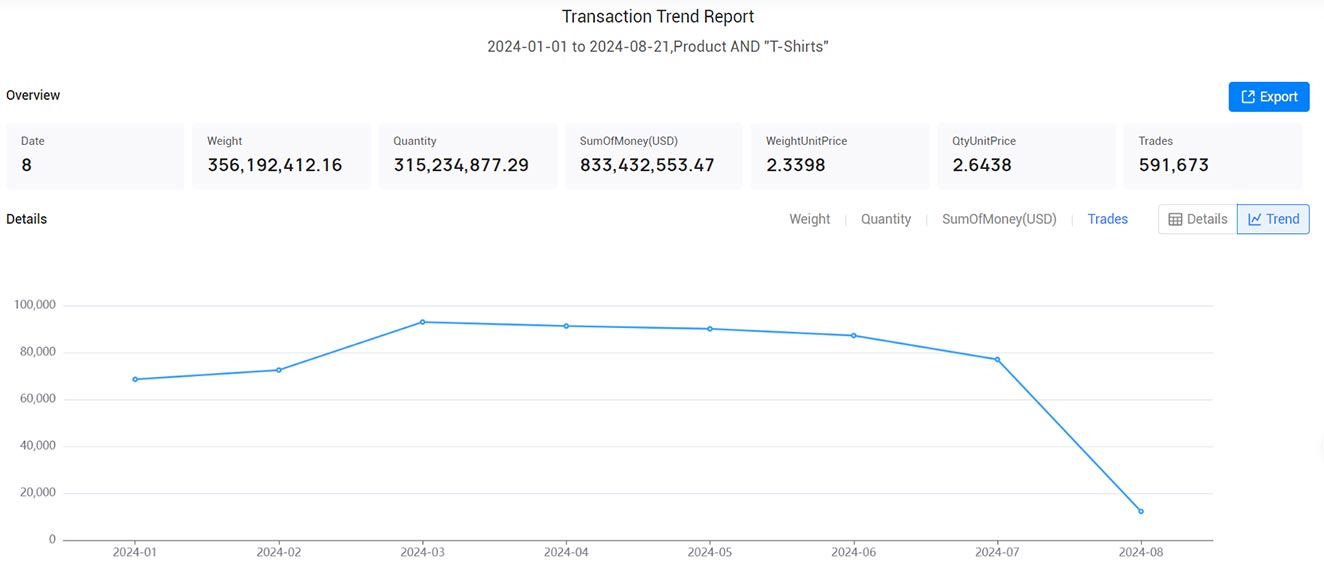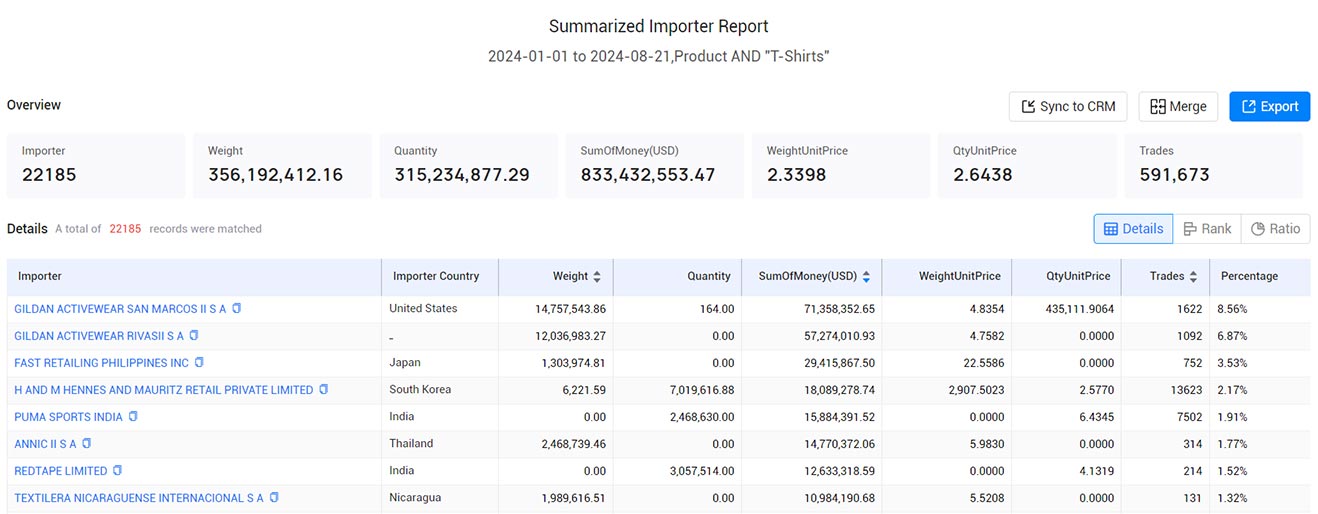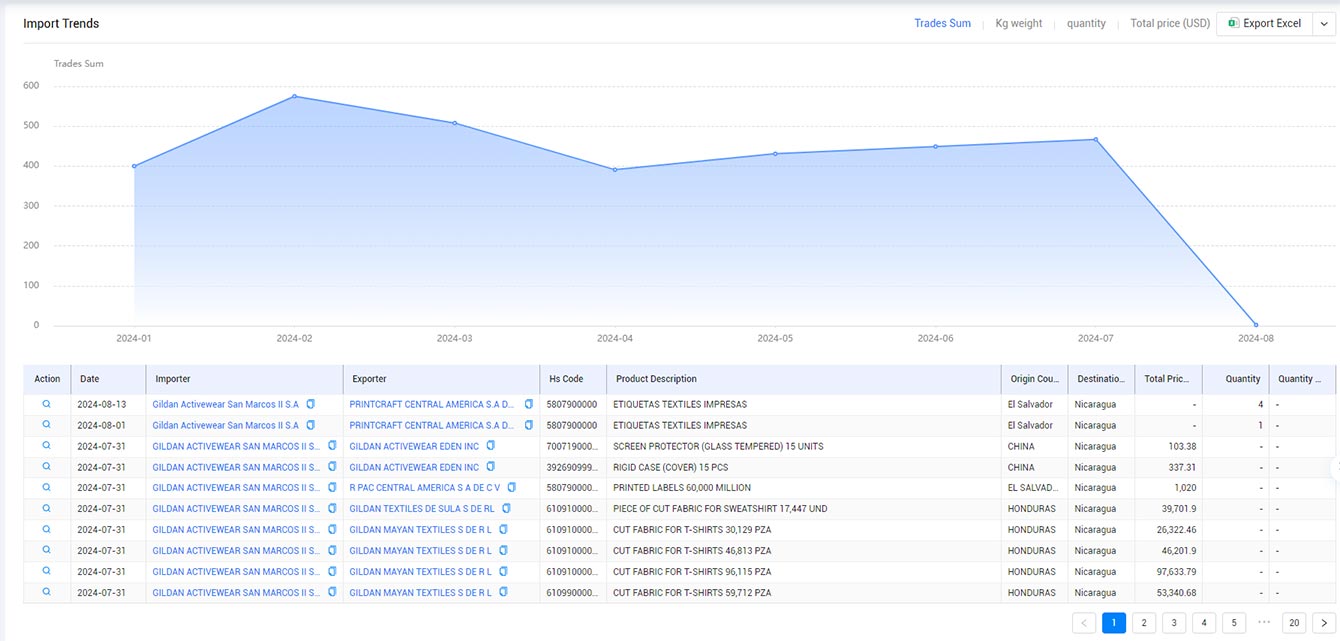 Trade Data Provider
Trade Data Provider
 19-09-2024
19-09-2024
In the field of foreign trade, finding potential customers is a crucial step for companies to expand into international markets and achieve business growth. As global trade becomes increasingly interconnected and complex, efficiently identifying and reaching potential customers has become a significant challenge for foreign trade businesses. Among the many methods for finding customers, customs data stands out with its unique value and advantages, becoming an indispensable market analysis tool for foreign trade companies. Tendata will explore how to use customs data to find potential customers in foreign trade and highlight the importance and applications of customs data.

Customs Data: The "Microscope" of the Foreign Trade Market
Customs data refers to the transaction information recorded by national customs during the import and export of goods. This includes, but is not limited to, the date of import/export, product names, quantities, amounts, and the names and countries of the buyer and seller. This data not only reflects the flow and scale of global trade but also contains valuable market information and business opportunities. For foreign trade companies, customs data serves as a "microscope," helping businesses gain insight into market trends, analyze competitors, and locate potential customers.
Tendata customs data is a business intelligence tool based on global import and export customs data. It covers customs data from 218 countries and regions, providing detailed trade information, including buyer and seller company details, product descriptions, transaction volumes, transaction amounts, and modes of transportation. Through Tendata customs data, foreign trade companies can deeply understand market dynamics, competitors, and potential customers.
How to Use Customs Data to Find Potential Customers?
1. Analyze Market Trends
Foreign trade companies can first use customs data to understand overall global market trends and popular products. By comparing data from different countries, regions, and industries, companies can identify which markets are growing rapidly and which products have high demand potential. This helps businesses adjust their product offerings and market strategies to select more promising target markets.
>> Use Tendata Customs Data to Understand Market Trends <<

2. Identify Potential Customers
Customs data includes detailed information on both buyers and sellers, enabling foreign trade companies to identify potential customers. By searching the import and export records of specific products or industries, companies can filter out potential customer names, countries, and contact information. Additionally, companies can rank potential customers based on factors such as purchase frequency and volume, prioritizing high-value clients for follow-up.
>> Use Tendata Customs Data to Find Potential Customers <<

3. Analyze Competitors
Customs data is also a powerful tool for analyzing competitors. By reviewing competitors' import and export records, companies can gain insights into their product structures, market positioning, and customer bases. This enables businesses to develop differentiated competitive strategies, avoid direct conflicts with competitors, and identify new market opportunities.
>> Use Tendata Customs Data to Analyze Competitors <<

Conclusion
Customs data is one of the essential tools for foreign trade companies to find potential customers. By analyzing customs data, businesses can gain insights into market trends, identify potential customers, analyze competitors, and assess market risks. Therefore, foreign trade companies should actively utilize this valuable resource to guide market decisions and customer development, continuously enhancing their market competitiveness and business growth potential.
Category
Leave Message for Demo Request or Questions


 T-info
T-info T-discovery
T-discovery

 My
Tendata
My
Tendata Market Analysis
Market Analysis Customer
Development
Customer
Development Competitor
Monitoring
Competitor
Monitoring Customer Relationship
Customer Relationship





































































































































